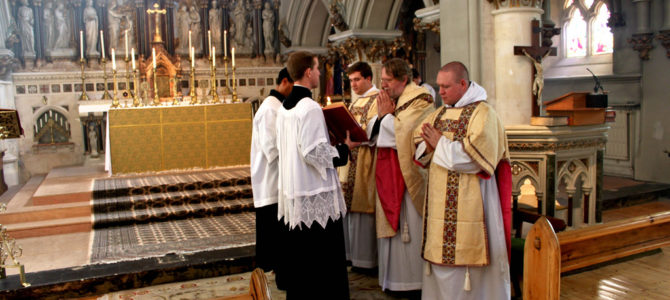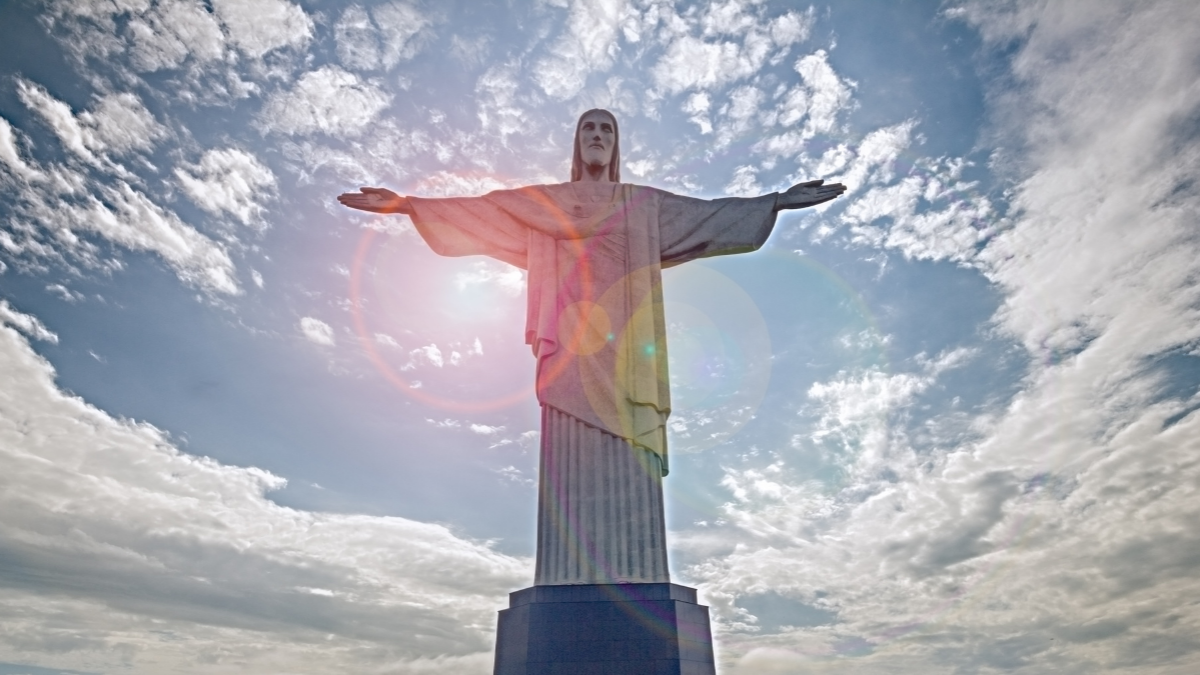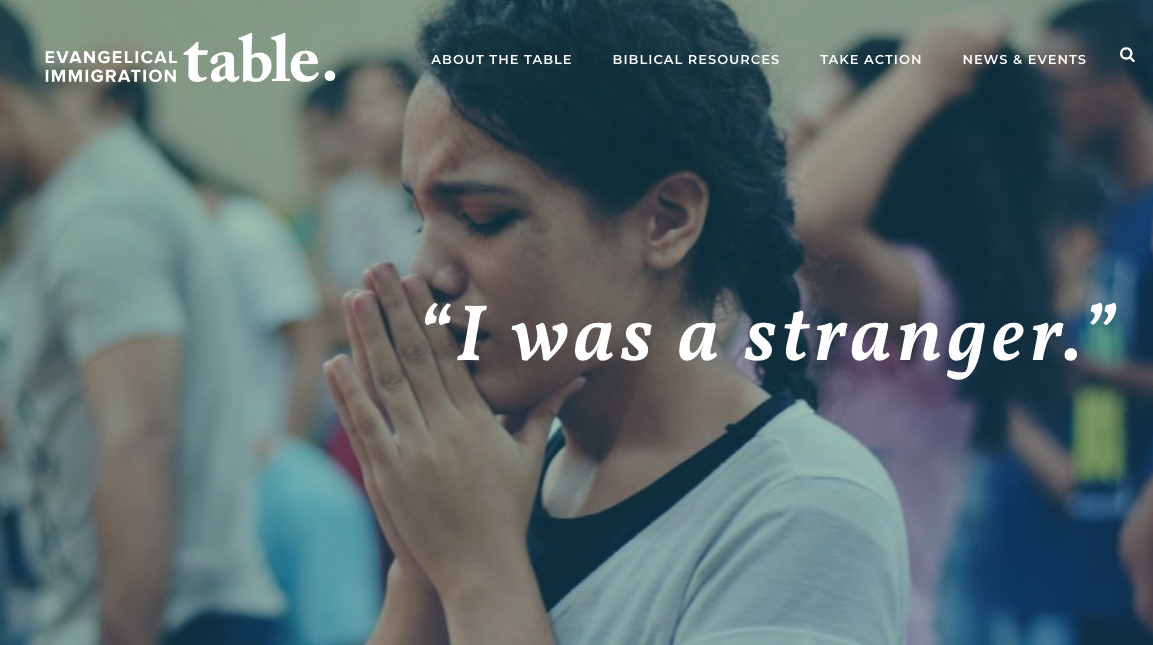
The young Catholic writer Matthew Schmitz recently published an article that quickly went viral. In “The Kids Are Old Rite,” Schmitz argues that many younger Catholics do not want an accommodated Catholicism; they prefer the older forms of worship, taking a kind of clandestine joy in the Latin Mass, for example.
As an evangelical theologian, I read this dispatch from the post-Vatican II wilds with interest. Modernity, or what some call postmodernity, declared war on traditional religion, and even the religious joined in the fray. Out with the old ways, in with “If you like Secular Artist X, you’ll love Christian Artist Y” culture.
In many Protestant churches, the traditional hymnbook is long gone, the order of service is as casually stated as open mic night at the local gastropub, and the pulpit—lovely hand-carved wood, sturdy, signifying the enduring authority of the Word of God—molds in a basement somewhere.
Here is the strangest thing: I see among young evangelicals what Schmitz sees among young Catholics. The kids want that old-time religion. They’re showing up all over the place, including at seminaries like mine in Kansas City. Here are three reasons behind the recent resurgence of young travelers on the old paths.
1. Modernity Has Detonated Tradition
Our society, which thinks it is an emergent techno-utopia, seems more and more to resemble rebellious, roiling, late eighteenth-century Paris. Religious types are targeted; monuments to cultural history are removed; everywhere we hear frenzied talk of progress and equality. What was it that Lafayette said in 1790? “Insurrection is the holiest of duties.” We pursue insurrection today with religious zeal. Religious groups—and religious individuals—receive punishment for abiding by their beliefs. When we study history, we study it primarily to overturn it, rarely to learn from it.
This kind of mentality has affected the church. Many evangelical youth have little connection to their Christian heritage. But they are doing their part to recover it. They want to be part of something ancient that reaches way back. They actually like liturgy, whether the strong or softer version. They have been encouraged to make everything up for themselves, to believe unceasingly in their own brilliance, but they seem to distrust these exhortations, rightly understanding them to be anything but freeing.
You may have sensed these currents yourself when attending a wedding, funeral, or similar ceremony. The old rules have relaxed, but when tragedy or great occasions come, we do not instinctually hold a cookout. We still—though we have been relentlessly indoctrinated to hate rituals and despise formality—want a ceremony.
And we still want someone to lead the ceremony. It is an awkward thing indeed to have the now-ubiquitous “sharing time” at such events. Nobody seems to know what to say. There is no structure. We all put our heads down and yearn for the weirdness to end.
The old ways are not perfect, of course. But we cannot miss that having an order of service relieves pressure and helps us savor the moment. As in major life moments, so it is in church. Most sincere churchgoers do not want to lead the service; they want to be led. This leads to our second observation.
2. Modernity Has Undermined Conviction
It’s well-established that postmodernity is, at base, a critique of authority. If you undermine authority, you undermine the essence of conviction. You no longer stand for principles; you hold to certain communal “values,” perhaps, but these are less ideals you would die for and more passive-aggressive mental gestures (to modify Trilling). “Tolerance.” “Unity.” “Together.” The dark irony of postmodernism, however, is that it is no less authoritarian than previous authorities. It is actually fanatical about its broad-brush commitments, yet generates no concomitant doctrine of religious liberty or free speech. Postmodernity is actually hard modernity—no, smashmouth modernity.
This has also affected the religious. Some evangelical churches have opted to play the postmodern game. They have raised their youth on entertainment, funny stories, and soft spirituality. But the youth, to a serious extent, do not hold up their end of the bargain. The seminary students I encounter have not packed up and moved thousands of miles to undertake demanding classes in theology, exegesis, history, and ethics because they wish to be entertained. They want the strong water rather than the weak stuff. They want theology. They know that “Ten Steps to Your Best You” is not going to sustain them through a miscarriage or death of a parent. They need biblical truth and wisdom, as will their congregants.
3. Modernity Has Undermined Beauty
We often hear today that there is no objective standard of beauty. It’s amusing to hear this, because never have we more fallen in the thrall of objective standards of beauty. Have you been to a gym lately, the kind full to the gills of barely-clothed twentysomethings affecting a “stay away” posture that is really a veiled “come hither” mentality? As a culture, we are fairly obsessed with surface-level beauty.
Postmodern architecture represents a form of this rebellion against established standards. Le Corbusier famously defined the home as a “machine for living.” Many modern church buildings follow this line of thought—they are functional, not beautiful. This is not evil, of course, but neither does it satisfy the hunger in every human heart for beauty, for order, even for grandeur. No one is going to tour a multi-use facility on his day off; tourists will not come from all over the world to see warehouses or industrial parks. They will, though, spend prodigious amounts of money simply to wander through cathedrals, mouths agape at what they see.
The younger generation wants something more than functionalism. They do not want to gather in “machines for worship.” They yearn for transcendence. They have grown up disillusioned; many are the children of dissolved marriages and torn-apart homes. They have gotten degrees from schools that offer little in the way of philosophical or spiritual inquiry, let alone uplift; they have been trained to be pragmatic, practical, and to get ahead.
Yet there persists in many souls a longing for something greater, something vaster, something ethereal. Evangelical churches possess infinite resources for such discoveries, and some seem to be making good on this inheritance. Formal instruction in religion seems to have disappeared in many colleges and universities, but the younger generation still has a soul, still craves the infinite, still cannot help but brush up against the numinous.
Against all the odds, or perhaps because of them, the kids are getting that old-time religion. From my little corner of the evangelical world, I see this in spades. The youngsters like serious expository sermons. They flock by the thousands to conferences where grandfathers in normcore Dockers exhort them to gospel-driven holiness.
They love older songs, often set to bluegrass-style melodies. They do not wish to hang out only with their peers. They crave help from older, established married couples who can help them figure out the bewildering particulars of covenant marriage. They want help. They want stability, truth, beauty.
Postmodernity—smashmouth modernity—has robbed them of these things. But the soul is not outmoded, and the Word of God is not bound.









